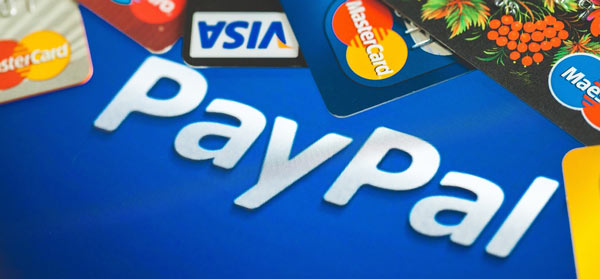PayPal is one of the biggest and most trusted online payment systems in the world, giving both shoppers and businesses access to easy-to-use instant payment tools. Shoppers can use PayPal to purchase items from hundreds of online stores, including its partner eBay, and receive or transfer money into their bank accounts.
What are the pros of using PayPal?
1. Opening an account is free
Opening a PayPal account is free and you don’t need a business license to send or receive money, meaning you can become an online buyer or seller in an instant. All you need is a valid email address and a valid credit card or bank account. You can sign up here.
In recent years, PayPal has also initiated the use of mobile card readers, allowing merchants to process payments on the road – great for market vendors and their customers.
2. You’re protected
PayPal is one of the most secure ways to pay online. It’s guaranteed against fraud, offering 100 per cent protection against unauthorised payments from your account. The seller never needs to see your credit card or bank numbers and your account and financial details are kept well-guarded.
3. More than just buying and selling
You can use PayPal for more than just buying and selling. Paying bills and sending money abroad has never been easier. When sending money overseas, PayPal provides you with the lowest price and is the safest and fastest way to make sure your money reaches its destination.
What are the cons of using PayPal?
1. Fees and freezes
The main two concerns regarding PayPal are fees associated with using your account and the fact PayPal has the right to freeze your account at any time, for any reason. Freezes can last anywhere from a few hours to months, and your money will be held until it’s unfrozen. This shouldn’t be an issue for legitimate businesses and sellers. While there are no costs for opening and owning a PayPal account, you may be charged a fee for currency conversion or sending money aboard. PayPal will also take a small fee each time a seller makes a transaction. Find out how much you may be charged with PayPal’s fee calculator.
2. Blurring the bank lines
PayPal is not a bank but it does meet certain banking and financial regulations in terms of customer guarantees and protection. However, in the case of PayPal’s insolvency, your funds won’t be protected (though this is highly unlikely to occur).
3. There’s always some risk with online payments
Being one of the largest online payment systems, PayPal is occasionally targeted by scammers. Attempts have been made to hack PayPal’s user database and access information. For this reason, ensuring you make a strong password is essential. Account holders may also be subject to scam emails from hackers pretending to be PayPal or eBay, so users also need to be alert to spotting scams.
Related articles:
Before you buy anything online …
Tips for safe online shopping
What are your rights to a refund?

